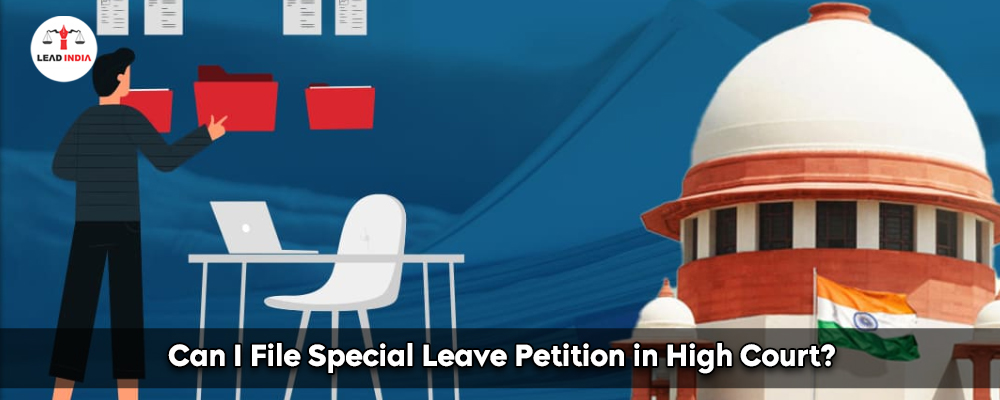There is a hierarchy of courts as well as tribunals at various levels in every legal system. Any person who is unhappy with the final result of a judgment rendered by a court lower in the hierarchy may file an appeal with the Court of appeal, which in India usually refers to a High Court. Nonetheless, an additional appeal may be filed to the Indian Supreme Court if either of the parties is dissatisfied with the appellate court’s ruling.
Article 136 of the Indian Constitution
- There is no provision to file a special leave petition in high court.
- According to Article 136 of the Indian Constitution, the Supreme Court can grant special permission for an appeal against any decision or ruling rendered by any High Court or tribunal in any subject or case.
- As the ultimate protector of the Constitution, the Supreme Court has the authority to interpret it however it sees fit.
Need A Legal Advice
The internet is not a lawyer and neither are you. Talk to a real lawyer about your legal issue

Why We Cannot File a Special Leave Petition in High Court?
An individual cannot file a special leave petition in high court because:
- Special leave petitions may be filed in opposition to any ruling, decision, or order made by any High Court or tribunal operating inside Indian territory, or
- The Special leave petitions may be filed if the High Court declines to provide a certificate of fitness for appeal to the Supreme Court of India.
How Can a Special Leave Petition Be Filed?
You cannot file a special leave petition in high court. Only the Supreme Court may receive Special Leave Petitions (SLPs) under the virtue of Article 136 of the Indian Constitution.
The procedure for filing the Special leave petition in the Supreme Court is as follows:
- For the Supreme Court to determine whether or not to consider a special leave petition, the petition must include every necessary detail.
- The advocate-on-record must properly sign this petition, which must also include the petitioner’s declaration that no additional petitions have been filed with the High Court.
- A copy of the judgment that the special leave petition is being requested against, an affidavit of verification, and all pertinent documents should be sent as well.
- Following the filing of the petition, the court hears the matter and, based on the case’s merits, permits the opposing party to present its contention in a counter affidavit.
- The court next determines whether or not to grant special leave. The Supreme Court will use its power of appeal if leave is granted.
- Both parties, the petitioner as well as the opposite party are required to abide by any subsequent rulings made by the Supreme Court.
Time Frame to File the Special Leave Petition under Article 136 of the Indian Constitution
- The High Court’s decision to withhold the certificate of his fitness for appeal to the Supreme Court may be followed by the filing of the Special Leave Petition within sixty days, or
- The Special Leave Petition may be filed within 90 days of the date of any High Court judgment.
In order to submit a Special Leave Petition before the Supreme Court, all relevant information must be stated in entirety, including the parties’ details, the legal matter at hand, the grounds for appeal, the main prayer, the sought-after remedy, and a declaration attesting to the validity of the attached documents. An Advocate-on-Record must sign the petition, which must be submitted in seven copies to the registrar along with the required payment.
Keep in mind that Article 136 has no restrictions, unlike other Articles it provides that an appeal may only be filed with regard to a judgment, decree, or final decision. Special leave to appeal is allowed even from interim orders, and appeals may be filed from any Indian court or tribunal.
For any type of legal assistance, one can speak with a lawyer from Lead India. Lead India provides free online legal advice in India. With Lead India, one can ask free online questions of the experts in addition to getting free legal advice.



